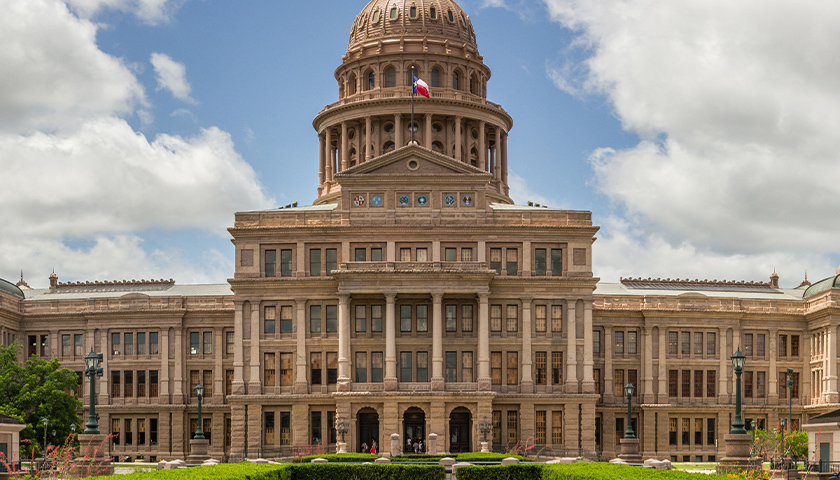by Andrew Trunsky
Texas’ controversial elections bill cleared the state House Friday afternoon, clearing its way to Gov. Greg Abbott’s desk after a months-long battle that drove Democrats to flee the state in an attempt to block its passage.
Senate Bill 1 was lauded by Republicans as a means to better secure future elections, but was chastised by Democrats as an effort to restrict voting access following former President Donald Trump’s discredited claims that the 2020 election was fraudulent. It passed on an 80-41 vote that fell largely along party lines.
The Texas House considered dozens of amendments during a marathon session Thursday, and the bill now heads to the Senate for the provisions adopted to be approved before heading to the governor’s desk. Abbott, a Republican who has championed the issue, has vowed to sign it.
 When Democrats in the legislature in May quietly left the Capitol minutes before the legislative session expired, Abbott called a special session to pass it. And when Democrats fled the state for Washington, D.C., preventing the bill from passing during the special session, Abbott did not hesitate to call a second one.
When Democrats in the legislature in May quietly left the Capitol minutes before the legislative session expired, Abbott called a special session to pass it. And when Democrats fled the state for Washington, D.C., preventing the bill from passing during the special session, Abbott did not hesitate to call a second one.
The approved bill limits early voting hours from 6 a.m. to 10 p.m. statewide, whereas before counties could offer as many hours as they chose above a set minimum. It bans outdoor and drive-thru polling places, many of which were adopted by large, urban counties amid the coronavirus pandemic, and bans public officials from offering mail-in ballot applications to people in an unsolicited way.
It also empowers partisan poll watchers, making it more difficult for election workers to remove them, though it requires them to undergo training ahead of time. It increases penalties for election-related forms that are submitted incorrectly, making many of the violations felony offenses.
Similar bills have passed in Republican-controlled states around the country, including Florida and Georgia. Congressional Democrats have attempted to counter the laws with their own bills, but they face no change of becoming law given a 50-50 Senate and the filibuster still intact.
– – –
Andrew Trunsky is a reporter at Daily Caller News Foundation.
Photo “Texas state capitol” by Jonathan Cutrer CC BY 2.0.





